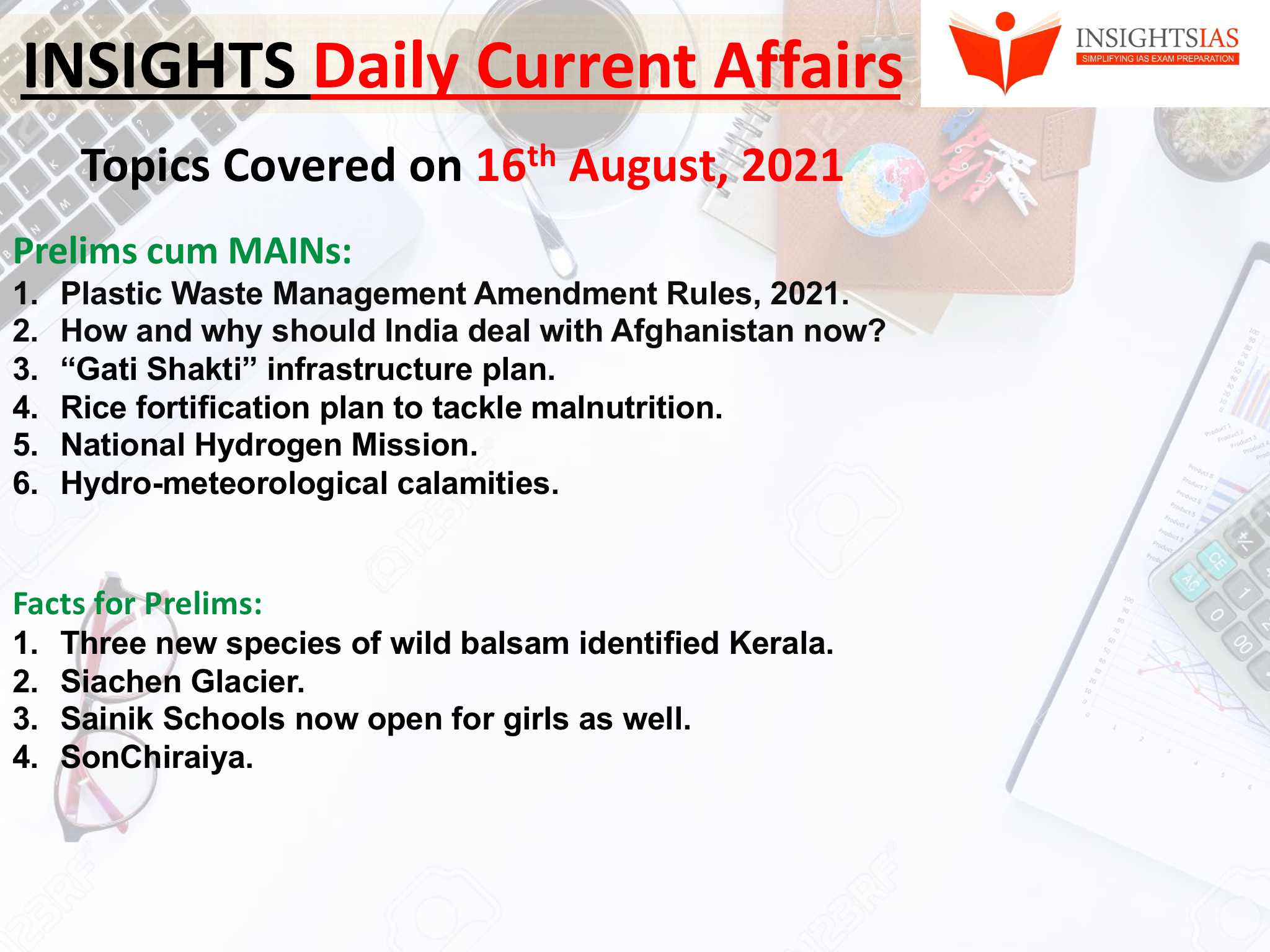[ad_1]
GS Paper 2
Topics Covered: Government policies and interventions for development in various sectors and issues arising out of their design and implementation.
Context:
The Environment Ministry has notified the Plastic Waste Management Amendment Rules, 2021, which prohibit specific single-use plastic items which have “low utility and high littering potential” by 2022.
The New Rules:
- What is banned? The manufacture, import, stocking, distribution, sale and use of the identified single-use plastic will be prohibited with effect from the 1st July, 2022.
- The ban will not apply to commodities made of compostable plastic.
- For banning other plastic commodities in the future, other than those that have been listed in this notification, the government has given industry ten years from the date of notification for compliance.
- The permitted thickness of the plastic bags, currently 50 microns, will be increased to 75 microns from 30th September, 2021, and to 120 microns from the 31st December, 2022.
- The Central Pollution Control Board, along with state pollution bodies, will monitor the ban, identify violations, and impose penalties already prescribed under the Environmental Protection Act, 1986.
- The plastic packaging waste, which is not covered under the phase out of identified single use plastic items, shall be collected and managed in an environmentally sustainable way through the Extended Producer Responsibility (EPR) of the Producer, importer and Brand owner (PIBO), as per Plastic Waste Management Rules, 2016.
What is single-use plastic?
It is a form of plastic that is disposable,which is only used once and then has to be thrown away or recycled like water bottles,straw,cups etc.
Few notable facts:
- India’s per capita consumption of plastic at 11 kilograms (kg) per year is still among the lowest in the world against global average is 28 kg per year.
- Close to 26,000 tons of plastic waste is generated across India every day and 10,000 tons uncollected.
A dilemma:
Some intellectuals argue that plastic is not harmful if it is managed, collected and recycled properly to other uses. On the other hand, some are in favour of a total ban on the plastics fearing its irreversible impact on them.
Reasons to ban:
According to World Wildlife Fund (WWF), plastic is harmful to the environment as it is non-biodegradable, takes years to disintegrate. Also:
- Waste plastic bags are polluting the land and water immensely.
- Plastic bags have become a threat to the life of animals living on earth as well as in water.
- Chemicals released by waste plastic bags enter the soil and make it infertile.
- Plastic bags are having a negative impact on human health.
- Plastic bags lead to drainage problems.
India’s efforts:
- India has won global acclaim for its “Beat Plastic Pollution” resolve declared on World Environment Day last year, under which it pledged to eliminate single-use plastic by 2022.
- At the fourth United Nations Environment Assembly in 2019, India piloted a resolution on addressing pollution caused by single-use plastic products.
Challenges to phase out single-use plastic:
- India does not have systems in place for effective segregation, collection and recycling.
- No policy for recycling plastics. Also challenges are there to set up a recycling plant because of environmental issues raised by Pollution Control Boards of various states.
- Single-use plastic has been a very good business, and that’s projected to continue.
- The economics favour more plastic production.
- A significant amount ends up in rivers, oceans and landfills are not recyclable.
- Also, Trade bodies like All India Plastic Manufacturers Association (AIPMA) recommends government to extend the deadline for phasing out SUP products by a period of one year to 2023 because of challenges caused by COVID.
Need of the hour:
- Intensify efforts to recycle plastic under Swachh bharat abhiyan
- Promoting the use of biodegradable plastics, khadi bags, cotton bags.
- Incentivising collection.
- Start charging the producers for their waste, which will lead to recovery and recycling.
Insta Curious:
Do you know about the project REPLAN? Reference
InstaLinks:
Prelims Link:
- About Single Use Plastics.
- About Plastic Waste management rules.
- Latest Amendments.
- What is Extended Producer Responsibility?
- About the UN Environment Assembly.
Mains Link:
Comment on India’s efforts to beat plastic pollution.
Sources: the Hindu.
[ad_2]

